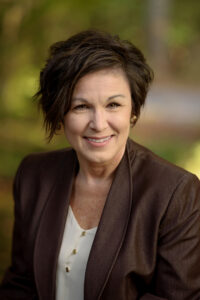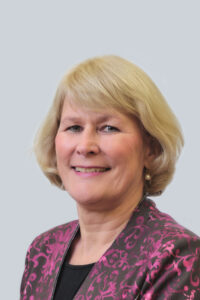 Women are substantially under-represented among the recipients of major awards in rheumatology, according to a 2022 study by Halling et al., which looked at the gender award gap in North America and Europe over the past two decades.1
Women are substantially under-represented among the recipients of major awards in rheumatology, according to a 2022 study by Halling et al., which looked at the gender award gap in North America and Europe over the past two decades.1
This trend is also seen in other fields, with only one woman winning the Fields Medal in mathematics since it was inaugurated 1936.2 Further, only 7% of the Nobel Prize awards go to women scientists in the categories of physiology or medicine, physics and chemistry.1
Scope of the Issue
Halling et al. aimed to shed light on the gender gap in rheumatology awards. To do this, they collected such details as award type and prize sum of 41 rheumatology awards and compared the prize cultures of the ACR, EULAR and the British Society for Rheumatology (BSR).
The number of women prize winners has risen during the past two decades. Over the past two years, the number of awards given by the three groups rose by 10%, but the overall percentage of award recipients who were women remained lower than men. Of all 2021 awards, the ACR allocated 40% to women, compared with 48% for EULAR and 50% for BSR.

Dr. Brehm
For prestigious awards, between 2017 and 2021, the ACR’s Presidential Gold Medal went to a woman only once, representing 20% of recipients, and the ACR Master Designation was awarded to women 26 times, representing 23% of total recipients over the time frame. During the same period, only one woman received the EULAR Meritorious Service Award, representing 11% of recipients. In 2022, the EULAR Health Professionals in Rheumatology Lifetime Achievement Award was introduced and given to Christina Opava, professor emeriti at the Division of Physiotherapy in the Karolinska Institutet, Sweden. Meanwhile, recipients of prestigious awards from BSR between 2017 and 2021 who were women represented 25% of prize winners for the Michael Mason Award and 33% for the Garrod Award.
Awareness
Halling et al. say that while awareness is the first step to change, action must follow. The authors propose three strategies to prize juries.
- Advocate for diversity among nominees and prize committee members. Along with gender, this diversity should take geographical region, among other factors, into account. Academic age (i.e., stage of career development) rather than biological age (i.e., years of life) considered in prize statutes.
- If prizes are to be named after a person or people, they should increasingly honor rheumatologists who are women to further increase their visibility in the field. Halling et al. note that no award has been named after a rheumatologist who is a woman to date.
- Increase transparency around the nomination procedure to promote gender equality among the future prize winners. The ACR “fully recognizes the importance of promoting diversity and inclusion and as we move forward with several new strategies to ensure diversity, equality and inclusion across all facets of the College’s activities,” says Tami J. Brehm, CAE, vice president of member engagement and governance for the ACR, Atlanta. “The recent induction of the 2022 awardees reflects a positive move forward.”
Along with the ACR, EULAR is also aware of the gender gap, which it says is not restricted to the maldistribution of prizes.
“EULAR is fully aware of the gender inequality in academic rheumatology,” says Julia Rautenstrauch, MD, executive director of EULAR in Kilchberg, Zurich, Switzerland. “The gender differences are not restricted to the maldistribution of prizes but also visible in the under-representation of women in senior academic roles. Furthermore, we identified gender differences across the whole spectrum of career advancement.”
Dr. Rautenstrauch explained that EULAR funded a task force in 2020 to specifically address this problem by obtaining evidence on the potential unmet need for support of female rheumatologists, health professionals and scientists in academic rheumatology. The EULAR study by Ovseiko et al. was published in August 2022.3

Dr. Rautenstrauch
Data from EULAR scientific member societies in 13 countries suggested there were fewer women in academic than in clinical rheumatology and that women were under-represented in senior academic roles. From the 324 responses of EULAR and Emerging EULAR Network (EMEUNET) members, which includes 24 countries, no gender differences were found in “leadership aspirations, self-efficacy in career advancement and work–life integration as well as the share of time spent on research,” according to the authors. However, gender differences were reported in working hours and the levels of perceived gender discrimination and sexual harassment. Moreover, gender differences were reported in the ranking of seven of 26 factors impacting career advancement and of eight of 24 potential interventions to assist career advancement.
ACR/EULAR Strategies
“The first step was the collection of data,” Dr. Rautenstrauch says. “The second step is to develop a framework for potential interventions to accelerate gender-equality career advancement in academic rheumatology through EULAR. This framework is part of our ongoing 2024 to 2028 EULAR strategy development process. Gender equality and the facilitation of the necessary interventions to aid career advancement will be included as a primary concern. Although we are aware that a perfect balance of representation cannot always be achieved, gender equality is a systematic aspect of the current EULAR governance structure. Our committees/task forces/working groups must ensure gender equality and diversity.”
The ACR has embraced several strategies in support of its diversity, equality and inclusion efforts, such as “developing the ACR 2022 to 2027 Strategic Plan with diversity, equality and inclusion as an overall foundation of our culture, and inclusion as one of our core values,” says Ms. Brehm.
The ACR has also named Michele Andwele to serve as director of diversity, equality and inclusion, a position that is “dedicated to shaping and sustaining efforts that advance a diverse, equitable and inclusive culture across all of the ACR’s membership and programmatic activities. This staff lead will be working closely with the Executive Committee and board of directors to develop specific strategies for 2023 and beyond,” says Ms. Brehm.
The ACR continues to “populate committees, such as the new Membership & Awards Committee, with volunteers who themselves represent diverse backgrounds, perspectives and areas of expertise,” adds Ms. Brehm.
Katie Robinson is a medical writer based in New York.
References
- Halling T, Dreher A, Mambrey V, et al. Prize trends in rheumatology: the gender award gap. Lancet Rheumatol. 2022 Oct;4(10):E655–E666.
- Castelvecchi D. Mathematics prizes have a gender problem—can it be fixed? Nature. 2022 Jun;606(7913):240–241.
- Ovseiko PV, Gossec L, Andreoli L, et al. Gender equity in academic rheumatology, current status and potential for improvement: A cross-sectional study to inform an EULAR task force. RMD Open. 2022 Aug;8(2):e002518.



